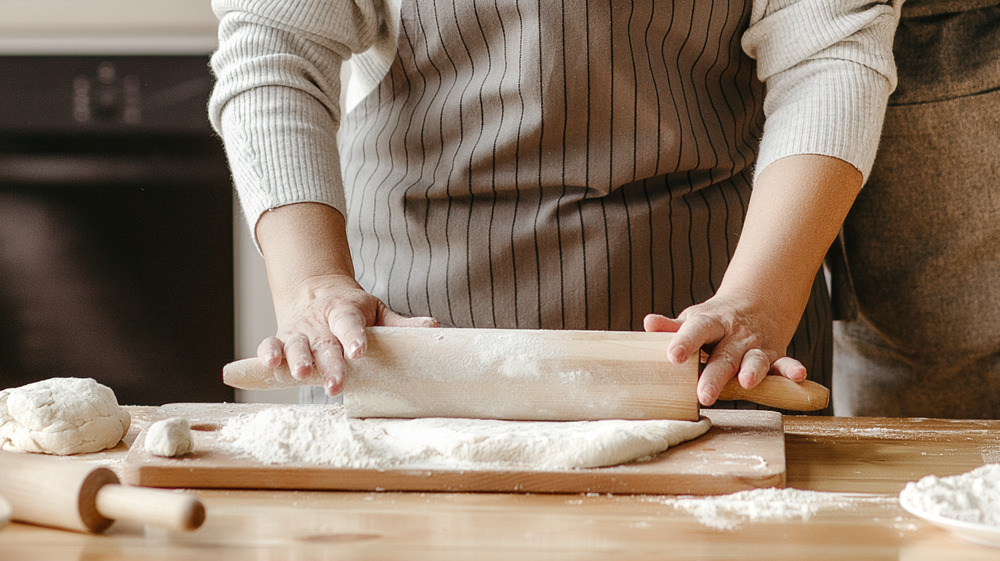This Arabic Word Describes What It Takes To Be A Gifted Cook
As far as many home cooks are concerned, it doesn't really take much to turn around a good meal. All you need is a few recipes, the right ingredients, and the right equipment. Unfortunately, as some cooks who are unable to boil water without burning it will attest, there seems to be so much more to cooking than just that — and it could well be "nafas".
Nafas isn't something you can acquire online, or at any brick-and-mortar store for any sum of cash or credit. It is, quite simply, the Arabic "Je ne sais quoi" (In French: I don't know what) to describe someone who can just cook, and do it well (via The New York Times).
English is probably the only language that doesn't have a word that captures the essence of nafas. The New York Times says the concept lives in Korean cooking as "sonmat" or hand taste. In India, it's "haatachi chav" (Marathi) — which also translates to "hand's taste," or "maza haath mein hota hai" (Hindi) — which means "the taste comes from the hand." And while we may not have a word to describe it, we'd certainly recognize it as "the reason why grandma's cooking tastes so good."
Nafas decribes the care that is put into preparing a meal
Writer Linda Laboun of Cookpad says the word "nafas" itself means "soul" or "breath." But when taken in the cooking context, nafas undergoes a metamorphosis and becomes the passion and emotion that someone might bestow on their cooking. It is the care and concern that is poured into the meal, whether it is prepping ingredients, mixing them up, cooking them, or serving them at a meal for family and friends. It also explains why an identical recipe with exactly the same ingredients will end up tasting a bit different depending on who cooks it.
Food scientist Rob Dunn uses science to try to explain nafas. He says it has to do with "the microbes on our hands and in our environment [which] lead[s] to variations in the flavor of our dishes," according to The New York Times. John Hayes, another professor of food science, believes that the context in which food is consumed, along with the emotional state of the eater, plays a part in skewing a diner's perception of the quality of a meal.
But as California-based home cook Raja Ereiqat tells The New York Times, "You can try to break it apart into different elements. [But nafas] is cooking with love for the food, the process and for feeding people."

